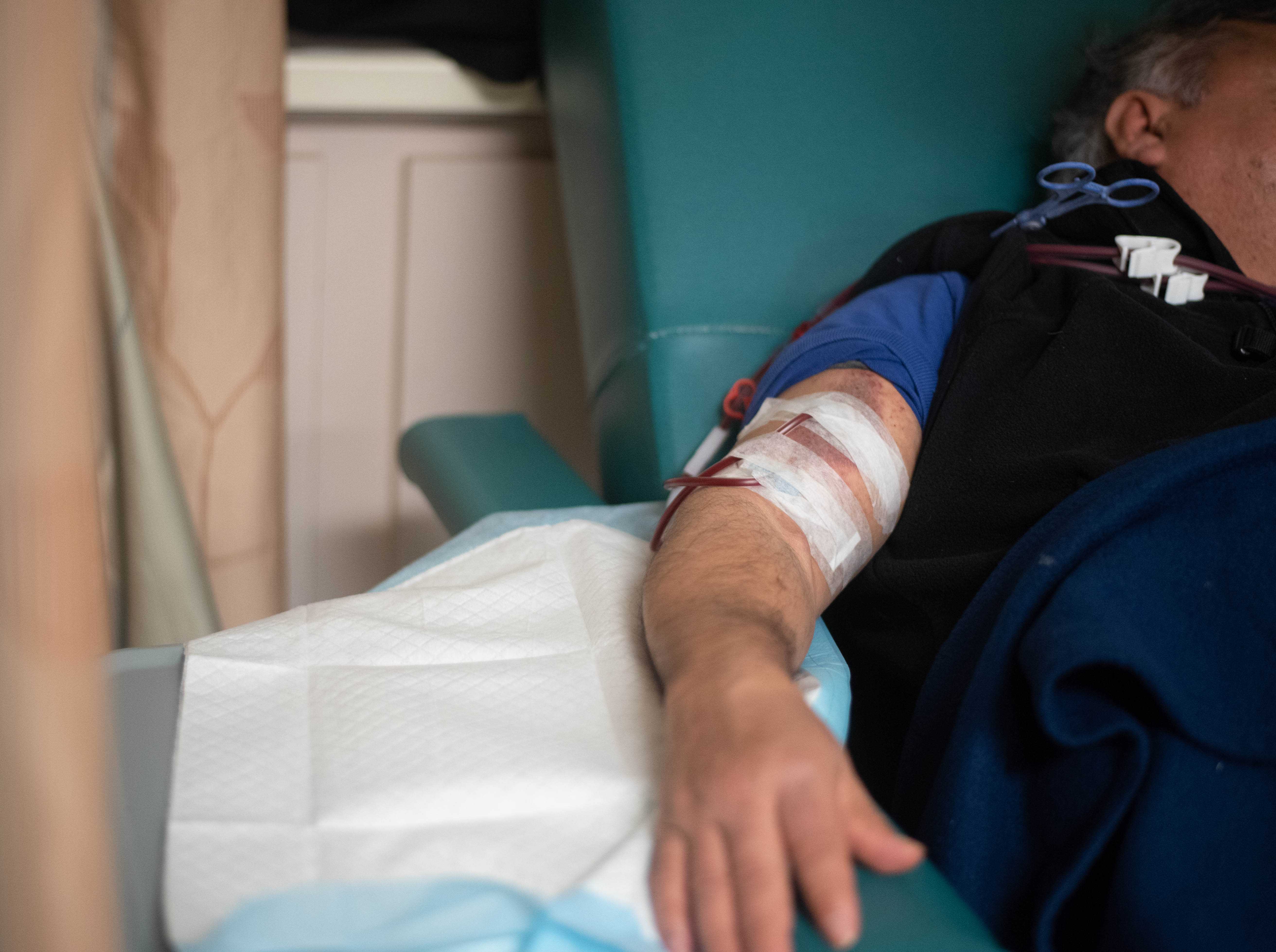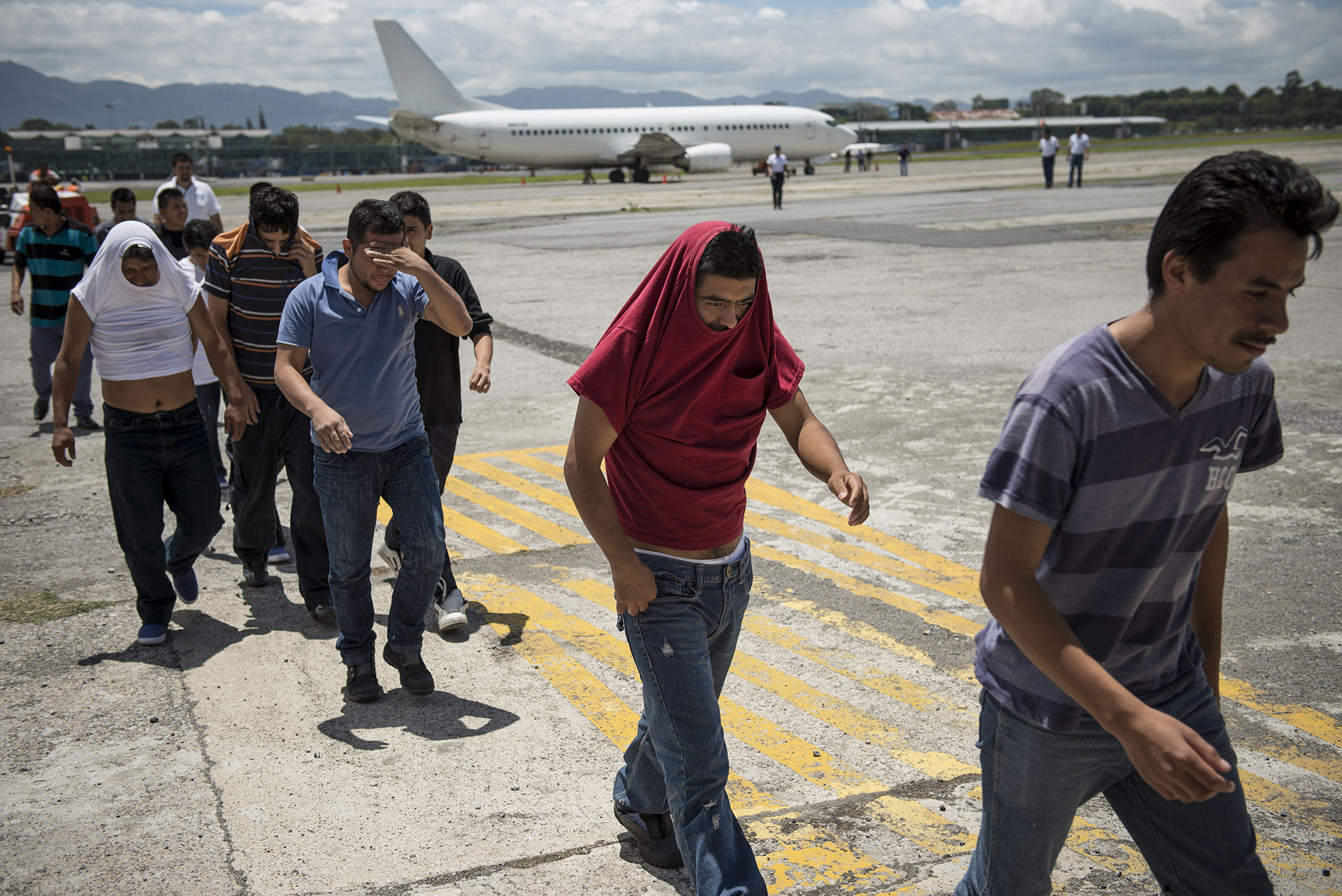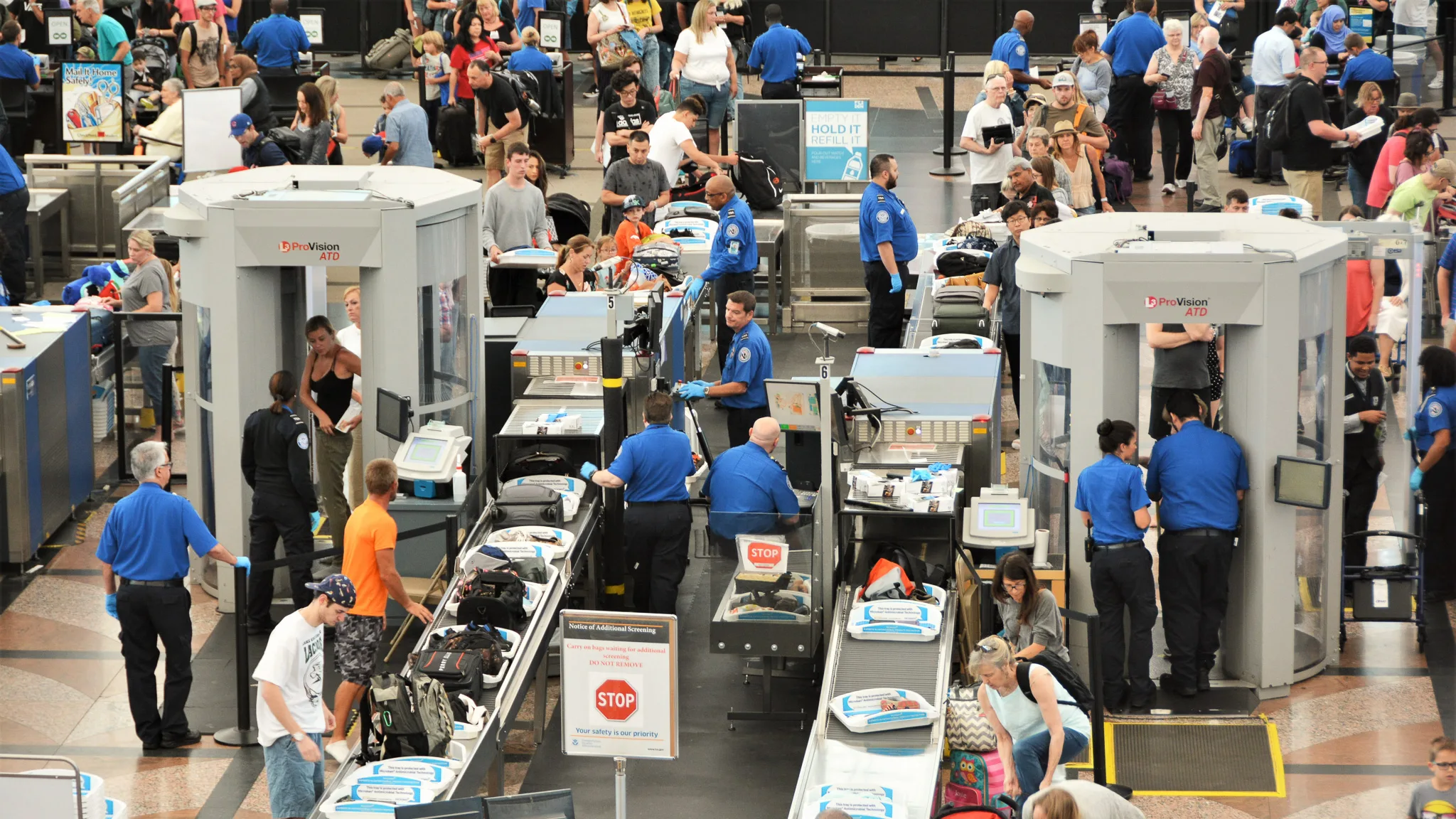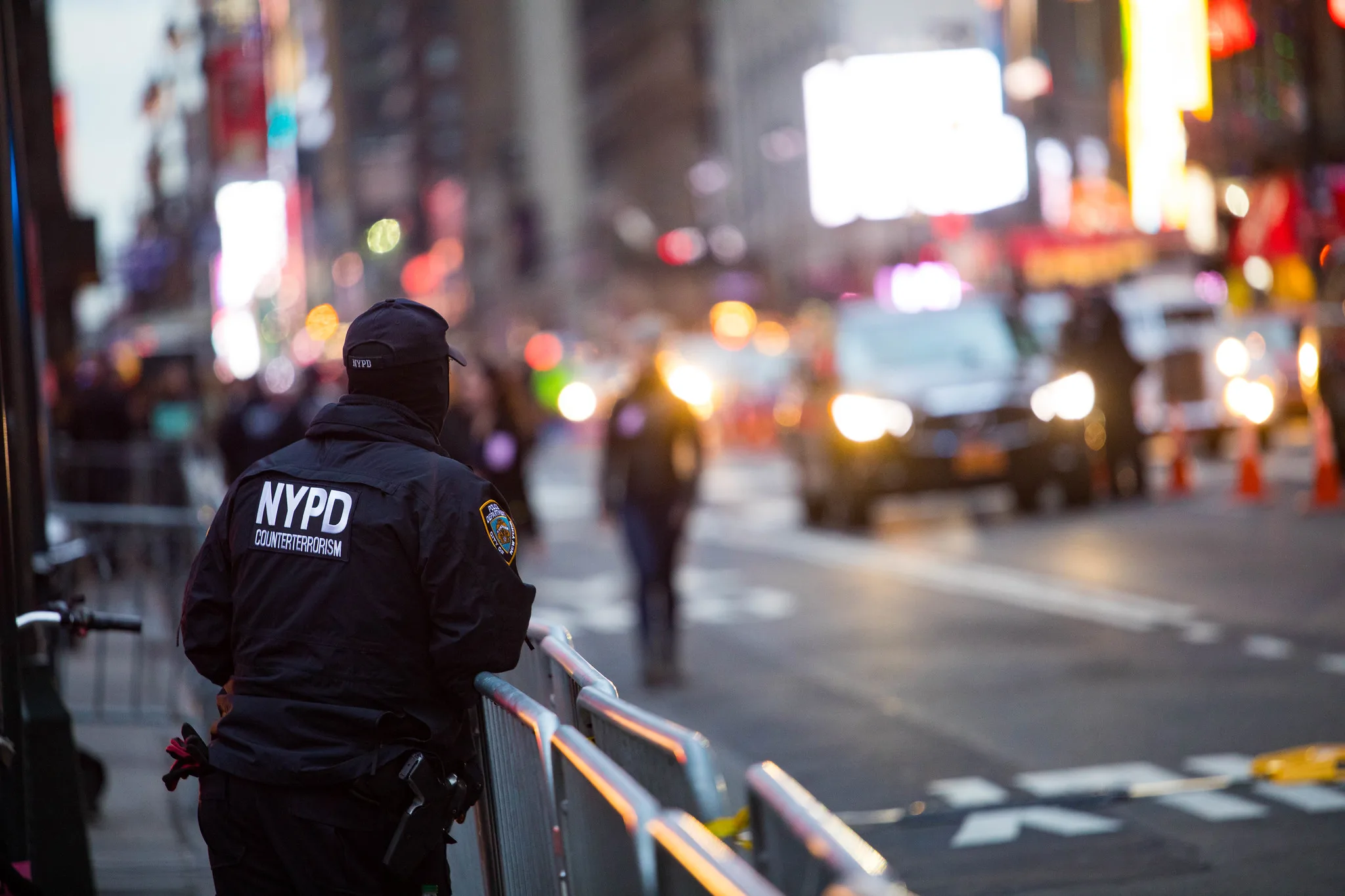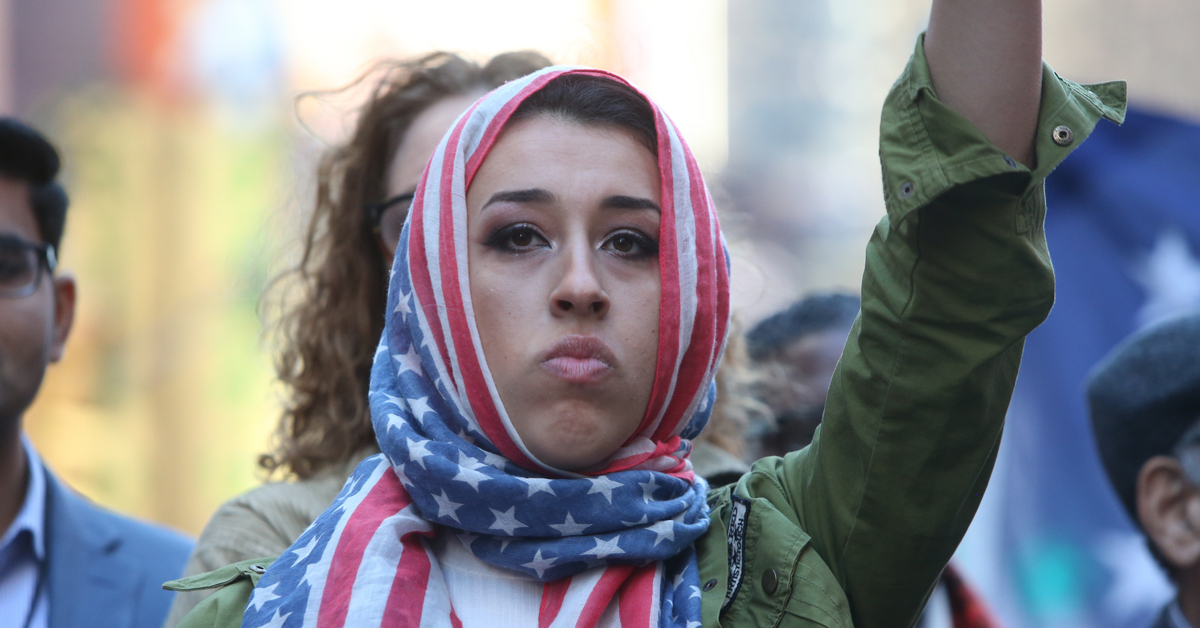When Sandra Lopez first began suffering from headaches, she didn’t think much of it. The 40-year-old laundry worker from the Bronx, continued to show up to work at the crowded laundromat, even as the pain was becoming ever more unbearable. With tears swelling from her eyes, Lopez, which is not her real name, asked her boss to go home. He told her to take a Tylenol and continue working, she said.
As an undocumented immigrant from Mexico, Lopez had heard rumors about the the public charge rule from friends. The new regulations, which were first implemented in February, could deny an individual a green card or a visa extension if an immigration officer determined that they would be dependent on certain public assistance programs. Her friends warned her of the perceived dangers of seeking public assistance. Even though Lopez was safe to seek medical help, and her symptoms were growing increasingly consistent with COVID-19, the rumors were enough for her to stay home.
“I feel afraid that I have to go to the hospital. Even though I recently got sick I chose to stay home because I don’t want something like that to be used against me later,” she said. “I’m not just talking about myself but many people like me.”
With the Bronx emerging as the City’s COVID-19 capital, many immigrants of various legal statuses, such as Lopez, are confused about whether the public charge rule will affect them. Immigrants with COVID-19 symptoms have expressed fears of seeking medical help due to public charge, sometimes with dire consequences. While the federal government maintains that seeking help for COVID-19 will not impact public charge determinations, fears remain.
Carolina Guiral Cuervo, a Senior Staff Attorney for Bronx Legal Services’ immigration unit, has been inundated with phone calls from frantic clients, worried that their immigration status might be jeopardized if they apply for Medicaid, unemployment insurance or food stamps.
As her clients, who are all immigrants, grapple with the health and economic effects of life during a pandemic, many fear applying for public assistance due to the Trump administration’s changes to the “public charge” rule. Many of Cuervo’s clients are not aware that they are exempt from the rule changes.
“I have had several clients that had COVID-19 and pre-existing conditions that were untreated,”she said. “For the first time ever they were forced to reach out and ask if they could even access care. They waited until they had COVID-19 and their symptoms were serious to ask me to see if they qualify for medical care because they didn’t want to go to a hospital out of fear.”
The rule establishes a test to determine whether immigrants entering the U.S., extending their visa, or applying for a green card, will likely end up applying for public benefits in the future. It also empowers immigration officials to determine who will likely become a “public charge” based on a series of factors such as those who applied for food stamps, Section 8 housing vouchers, and Medicaid. Green card holders and citizens are not affected. Refugees and asylum seekers are also exempt.
In March, the U.S. Citizenship and Immigration Services announced that testing, treatment, or preventative care related to COVID-19, will not be factored into public charge determinations. Still, despite the announcement and months of outreach by community organizations, confusion on who does and doesn’t qualify is still widespread.
“What we have seen without question over the past year in a half, is hundreds of non citizens closing their public benefits cases out of an abundance of caution for fear of receiving public benefits either now or in the future will jeopardize their immigration status,” said Jack Newton, Director of Public Benefits for Bronx Legal Services. “The overwhelming amount of people who have done this will not be affected by the public charge rule because their status exempts them.”
Amidst the COVID-19 crisis, that lack of awareness amongst immigrant communities has had dire consequences.
Beatriz Ramirez was recently fired from her job at New Giant Laundry Center in Jamaica, Queens after working there for three years. With five children to support, she has been left to ponder what she does next. After hearing rumors about the public charge rule she is unsure if she should apply for SNAP benefits or Medicaid.
“I feel sad and depressed with this situation. I have an ITIN number and have 19 years of paying taxes, but as an immigrant and an essential worker, we have zero support,” she says. “At this moment, I am worried about my family. It is hard that we don’t get any benefits. Many other workers like me are paying their taxes, and we don’t get support. I’m trying to be positive to keep my physical and mental health.”
However, despite the fear, a vast array of public benefit programs are not subject to the public charge, such as the WIC program, New York State Medicaid, Emergency Medicaid, Medicaid for pregnant women and children, New York State Essential Plan as well as accessing the city’s hospitals, clinics and healthcare centers.
Still, Jack Newton has witnessed scores of clients close their SNAP and Medicaid cases even though the rule did not apply to them. At least two of his clients have since fallen ill with severe COVID-19 infections but were unable to go to the hospital out of fear of being enrolled in Emergency Medicaid. According to Newton, in just the first two weeks of the COVID-19 crisis alone, Bronx Legal Aid was inundated with a 750 percent increase in calls for public benefits inquiries. Over half of the calls were non-citizens afraid of some versions of public charge.
“The public charge has absolutely exasperated the crisis,” says Newton. “Many of the lower income non citizens live in the hardest hit zip codes and it’s terrifying to seek care in this environment. Even in this so-called sanctuary city, the spectra of the federal government identifying them created more panic.”
Data collected by the city’s Department of Social Services of SNAP disenrollment seems to confirm what many social service organizations already suspected. Since Trump’s election, SNAP enrollment for both citizens and non-citizens decreased in 2017 and 2018. By far, there was a steeper decrease among non-citizens, falling by 10.9 percent, compared to 2.8 percent for citizens.
According to New York City Health + Hospitals, the fallout from the new public charge rule could cause the agency to lose upwards of $362 million in the first year alone of its implementation. With nearly 40 percent of their patients born outside the U.S, the agency also projects that 62,000 of its patients could ultimately abandon Medicaid out of fear.
To ease the burden that the public charge rule is levying on immigrant families, in April, New York Attorney General Letitia James and New York City’s Corporation Counsel James Johnson filed a motion in Manhattan federal court to temporarily halt the implementation of the public charge rule during the COVID-19 crisis.
During a hearing on Monday, U.S. District Judge George B. Daniels, who previously blocked the rule, admonished government attorneys for its callousness in pushing for the rule during the epidemic. Judge Daniels believed that the consequences of the rule change “could be death from coronavirus.”
The motion followed James’s attempt to persuade the Supreme Court to take emergency measures to temporarily halt the public charge rule until the national pandemic is over. The court denied the request court gave James the permission to seek a temporary suspension to the district court. Groups like Make the Road, who launched its own lawsuit last August, applaud the Attorneys General’s case.
Back in the Bronx, where nearly 40,000 have become infected, Jack Newton worries about the wellbeing of his two clients who have contracted COVID-19. Had they been able to get tested, he wonders, would they not be as sick as they are now?
“No one knew whether or not they had COVID-19 because if you’re poor and of color living in the Bronx you can’t get tested.”
As for Sandra Lopez, who has yet to be tested, she is still cautious about seeking treatment. After complaining numerous times to her boss about her working conditions, she was fired, she says. Without a job and afraid to seek out government help due to her precarious legal status, Lopez is unsure about her future during the pandemic.
“I don’t know what is next for me. Only god knows what tomorrow will bring. I just have to stay strong and keep fighting for myself and others like me.”
